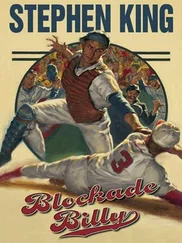William Ellis - Billy Sunday
Здесь есть возможность читать онлайн «William Ellis - Billy Sunday» — ознакомительный отрывок электронной книги совершенно бесплатно, а после прочтения отрывка купить полную версию. В некоторых случаях можно слушать аудио, скачать через торрент в формате fb2 и присутствует краткое содержание. Жанр: foreign_antique, foreign_prose, на английском языке. Описание произведения, (предисловие) а так же отзывы посетителей доступны на портале библиотеки ЛибКат.
- Название:Billy Sunday
- Автор:
- Жанр:
- Год:неизвестен
- ISBN:нет данных
- Рейтинг книги:3 / 5. Голосов: 1
-
Избранное:Добавить в избранное
- Отзывы:
-
Ваша оценка:
- 60
- 1
- 2
- 3
- 4
- 5
Billy Sunday: краткое содержание, описание и аннотация
Предлагаем к чтению аннотацию, описание, краткое содержание или предисловие (зависит от того, что написал сам автор книги «Billy Sunday»). Если вы не нашли необходимую информацию о книге — напишите в комментариях, мы постараемся отыскать её.
Billy Sunday — читать онлайн ознакомительный отрывок
Ниже представлен текст книги, разбитый по страницам. Система сохранения места последней прочитанной страницы, позволяет с удобством читать онлайн бесплатно книгу «Billy Sunday», без необходимости каждый раз заново искать на чём Вы остановились. Поставьте закладку, и сможете в любой момент перейти на страницу, на которой закончили чтение.
Интервал:
Закладка:
"An old Methodist minister said to me a few years ago, 'Why, William, you didn't take the $10, did you?' I said, 'You bet your life I did.'"
After his five years with the Chicago baseball team, Sunday played upon the Pittsburgh and the Philadelphia teams, his prestige so growing with the years that after he had been eight years in baseball, he declined a contract at five hundred dollars a month, in order to enter Christian work.
For most of his baseball career Sunday was an out-and-out Christian. He had been converted in 1887, after four years of membership on the Chicago team. He had worked at his religion; his team mates knew his Christianity for the real thing. On Sundays, because of his eminence as a baseball player, he was in great demand for Y. M. C. A. talks. The sporting papers all alluded frequently to his religious interests and activities. Because of his Christian scruples he refused to play baseball on Sunday. During the four years of his experience as a Christian member of the baseball profession it might have been clear to anybody who cared to study the situation carefully that the young man's interest in religion was steadily deepening and that he was headed toward some form of avowedly Christian service.
"I had a three-year contract with Philadelphia. I said to God, 'Now if you want me to quit playing ball and go into evangelistic work, then you get me my release,' and so I left it with God to get my release before the 25th day of March and would take that as an evidence that he wanted me to quit playing ball.
"On the 17th day of March, St. Patrick's day – I shall never forget it – I was leading a meeting and received a letter from Colonel Rogers, president of the Philadelphia club, stating I could have my release.
"In came Jim Hart, of the Cincinnati team, and up on the platform and pulled out a contract for $3,500. A player only plays seven months, and he threw the check down for $500, the first month's salary in advance. He said, 'Bill, sign up!' But I said, 'No!' I told him that I told God if he wanted me to quit playing ball to get my release before the 25th day of March and I would quit.
"There I was up against it. I went around to some of my friends and some said, 'Take it!' Others said, 'Stick to your promise.' I asked my father-in-law about it, and he said, 'You are a blank fool if you don't take it.' I went home and went to bed, but could not sleep, and prayed that night until five o'clock, when I seemed to get the thing straight and said, 'No, sir, I will not do it.'
"I went to work for the Y. M. C. A. and had a very hard time of it. It was during those hard times that I hardly had enough to pay my house rent, but I stuck to my promise."
It was in March of 1891 that Sunday made the decision which marked the parting of the ways for him. He abandoned baseball forever as a profession, although not as an interest, and entered upon definite religious work. He accepted a position in the Chicago Y. M. C. A. as a subordinate secretary at $83.33 per month – and sometimes this was six months overdue.
The stuff of which the young man's moral character was made is revealed by the fact that he deliberately rejected a $500-a-month baseball contract in order to serve Christ at a personal sacrifice. This incident reveals the real temper of Sunday, and is to be borne in mind when discussion is raised concerning the large offerings which are made to him now in his successful evangelistic work. That act was not the deed of a money-loving man. If it does not spell consecration, it is difficult to define what it does mean.
Doubtless there were many who thought this ending of a conspicuous baseball career an anti-climax, even as the flight of Moses into the wilderness of Sinai apparently spelled defeat. Out of such defeats and sacrifices as these grow the victories that best serve the world and most honor God.
CHAPTER IV
A Curbstone Recruit
You've got to sign your own Declaration of Independence before you can celebrate your Fourth of July victory. – Billy Sunday.
Nobody this side of heaven can tell to whom the credit belongs for any great life or great work. But we may be reasonably sure that the unsung and unknown women of the earth have a large part in every achievement worth while.
Mrs. Clark, saintly wife of Colonel Clark, the devoted founder of the Pacific Garden Rescue Mission in Chicago, is one of that host of women who, like the few who followed Jesus in his earthly ministry, have served in lowly, inconspicuous ways, doing small tasks from a great love. Night after night, with a consecration which never flagged, she labored in the gospel for a motley crowd of men and women, mostly society's flotsam and jetsam, many of whom found this hospitable building the last fort this side of destruction.
A single visit to a down-town rescue mission is romantic, picturesque and somewhat of an adventure – a sort of sanctified slumming trip. Far different is it to spend night after night, regardless of weather or personal feelings, in coming to close grips with sin-sodden men and women, many of them the devil's refuse. A sickening share of the number are merely seeking shelter or lodging or food: sin's wages are not sufficient to live upon, and they turn to the mercy of Christianity for succor. Never to be cast down by unworthiness or ingratitude, to keep a heart of hope in face of successive failures, and to rejoice with a shepherd's joy over the one rescued – this is the spirit of the consecrated rescue-mission worker.
Such a woman was Mrs. Clark, the spiritual mother to a multitude of redeemed men. Of all the trophies which she has laid at the feet of her Lord, the redemption of Billy Sunday seems to human eyes the brightest. For it was this woman who persuaded him to accept Christ as his Saviour: he whose hand has led perhaps a quarter of a million persons to the foot of the Cross was himself led thither by this saintly woman.
When we contemplate the relation of that one humble rescue mission in Chicago, the monument of a business man's consecration to Christ, to the scores of Sunday Tabernacles over the land; and when we connect the streams of penitents on the "sawdust trail" with that one young man of twenty-five going forward up the aisle of the rude mission room, we realize afresh that God uses many workers to carry on his one work; and that though Paul may plant and Apollos water, it is God alone who giveth the increase.
It was one evening in the fall of 1887 that Sunday, with five of his baseball team mates, sat on the curbstone of Van Buren Street and listened to the music and testimonies of a band of workers from the Pacific Garden Rescue Mission. The deeps of sentiment inherited from a Christian mother, and the memories of a Christian home, were stirred in the breast of one of the men; and Sunday accepted the invitation of a worker to visit the mission. Moved by the vital testimonies which he heard, he went again and again; and at length, after conversation and prayer with Mrs. Clark, he made the great decision which committed him to the Christian life.
Sunday's own story of his conversion is one of the most thrilling of all the evangelist's messages. It is a human document, a leaf in that great book of Christian evidences which God is still writing day by day.
"Twenty-seven years ago I walked down a street in Chicago in company with some ball players who were famous in this world – some of them are dead now – and we went into a saloon. It was Sunday afternoon and we got tanked up and then went and sat down on a corner. I never go by that street without thanking God for saving me. It was a vacant lot at that time. We sat down on a curbing. Across the street a company of men and women were playing on instruments – horns, flutes and slide trombones – and the others were singing the gospel hymns that I used to hear my mother sing back in the log cabin in Iowa and back in the old church where I used to go to Sunday school.
Читать дальшеИнтервал:
Закладка:
Похожие книги на «Billy Sunday»
Представляем Вашему вниманию похожие книги на «Billy Sunday» списком для выбора. Мы отобрали схожую по названию и смыслу литературу в надежде предоставить читателям больше вариантов отыскать новые, интересные, ещё непрочитанные произведения.
Обсуждение, отзывы о книге «Billy Sunday» и просто собственные мнения читателей. Оставьте ваши комментарии, напишите, что Вы думаете о произведении, его смысле или главных героях. Укажите что конкретно понравилось, а что нет, и почему Вы так считаете.












